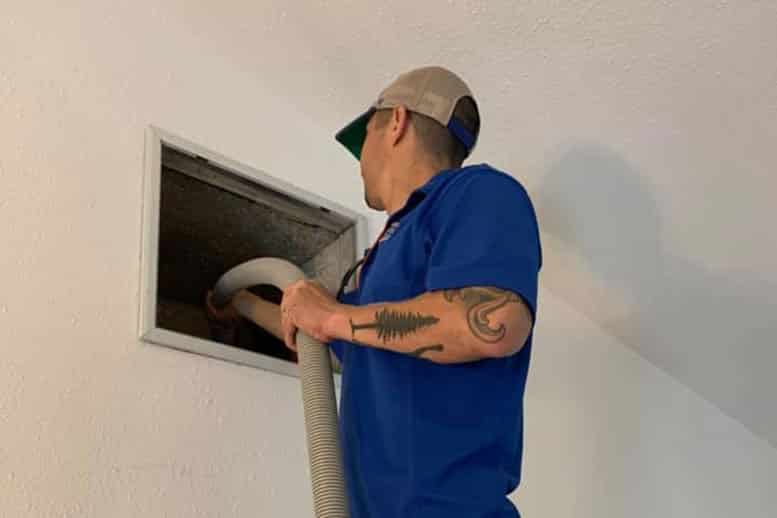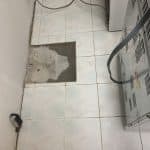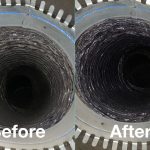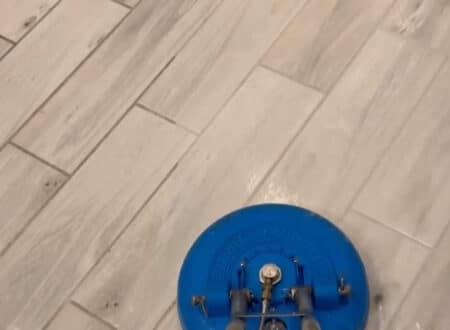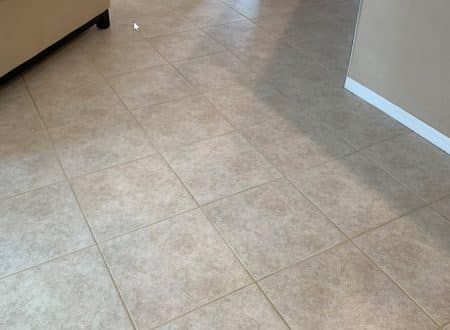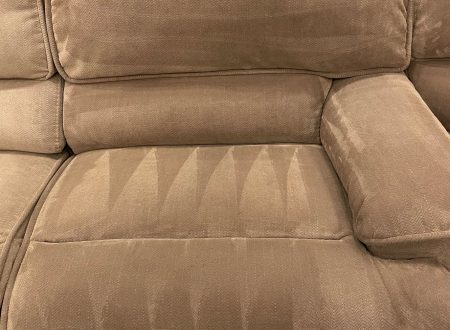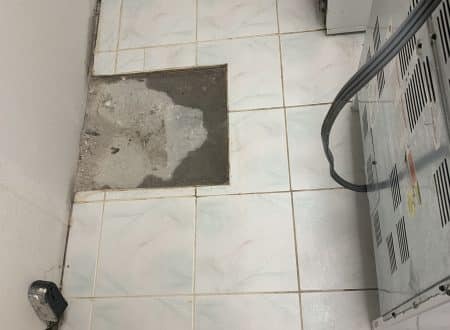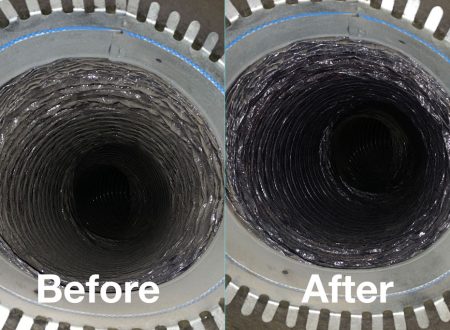We all want to breathe clean, fresh air, but the reality is that indoor air can be five times more polluted than outdoor air. And what we’re breathing in our homes and offices is not always healthy. From mold to dust mites, pet dander to pollen, pollutants in our indoor environment can cause a variety of health problems, including allergies and asthma. So how do you clean up your indoor air? With professional air duct cleaning by True Price Carpet Cleaning.
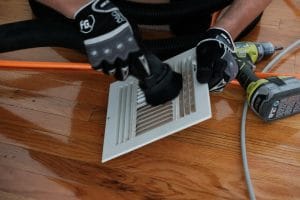
Why is air duct cleaning important?
It is important to know 3 of the most common pollutants in air ducts. The most common pollutants found in air ducts are:
1. Particulate Matter:
Particulate matter is a fancy way of saying dust. Dust in your vents is a big problem because it can cause serious health issues and is easily spread around your home if you don’t clean it.
2. Diminishing Returns:
The (often tiny) particles that go into your air ducts aren’t going to stay in there forever — in fact some might even stick around for years — so each time the unit gets warmer (aka the ducts get moister), the particles have to go further into the unit to make their way out into the air. What this means is that as your A/C gets warmer, so does the amount of particles in the air, and the longer they linger, the more pollution they can cause.
3. Emissions:
When the hot air passes through your cooling system, carbon dioxide (soot) and other pollutants from your heating systems (and any appliance) are stripped away. What’s left behind in your air ducts contains particulate matter.
Scary stuff, I know. But if your air conditioner isn’t running all of the time like it should be, or if you have an A/C unit that just won’t cool down enough, you’re blowing a serious opportunity (and pollution) away from your other appliances.
How Duct Cleaning and Misting Improve Indoor Air Quality
Misting your air ducts is a great (albeit pricier) way to help prevent pollution — and I’d mime air-cleaning my own house if it meant preventing 100+ middle-aged residents from coming home with a nasty cold; that doesn’t sound fun.
It’s also good for tenants. Since most tenants aren’t homeowners, most of the people coming through your property will be human visitors. You want to keep them coming in the house as comfortable as possible, and effectively muffle their footsteps with fresh air. At least that’s the theory.
In reality, this is a difficult thing to do properly.
How to improve your indoor air quality by regular air duct cleaning
To improve the quality of your indoor air, it’s important to maintain a clean home. Vacuuming and sweeping regularly will remove dirt, dust, and debris, and that will help to improve your indoor air quality. Before beginning to air-clean an area, it’s important to free up any potentially large air drafts.
How can I vacuum and/or mop the inside of my property? There are several homeowners’ resources that discuss methods for cleaning the inside of a property. Just remember that it’s important to stay on top of vacuuming and leaving the mop out of the washing machine. That way the air is not trapped between the different materials.
How can I clean my windows? By holding the mop above your window, you can scrape any loose dirt and debris that may collect underneath. Of course, depending on where your window is, this may not work particularly well.
Can I keep a mop in my pantry for quick cleaning? Yes. But you’d be best to schedule it for use when needed. Also, most windows are in use only for a short amount of time, so you’d be better off using a wiping mop and detergent to clean the windows properly rather than having to keep a mop and charger at your property.
What are the benefits of air duct cleaning?
You might not think about it, but you’re breathing in dust, dirt, pet dander, and all kinds of allergens every time you inhale. That’s why air duct cleaning is so important. When air ducts get covered with accumulated dust and dirt, the air circulation within filters gets clogged. This prevents stains and odors from getting trapped between the walls and ceiling of your home.
Who is qualified to perform air duct cleaning—and what questions should you ask?
The following are things you should ask a company before you hire them to clean your ducts:
1) Do you do the work?
Don’t hire someone who says they can clean your ducts but then sends out a subcontractor to do the work. There are definitely legitimate ways of removing microorganisms from a duct, but this is NOT one of them. If you’re going to have somebody else do the clean up, it’s essential that the “cleaning company” actually identify a project; otherwise, all you’re looking at is an excuse.
2) How much is it going to take to clean each line?
You’ll want to know how many lines will be cleaned in a given instance in order to determine pricing for the service. To determine the number of lines to be cleaned, you generally want to take into consideration the length, width, and distance of the duct as well as the presence and location of insulation.
3) How many vents/seals do you have?
Hiring a cleaner that relies on glue, sealant, and duct tape will only increase the time and cost of the job. Guard your money and do your research before hiring.
4) Is the cleaner insured?
You need to concern yourself with checkups on the air duct cleanliness that will help identify serious problems. Chances are, the company that’s hired to repair the air duct will have their own maintenance training, which should tell you they understand the importance of this issue.
5) Do you repeat the jobs yourself, or will I pay for your labor?
Someone has to do the work, and it can’t be outsourced to someone else if it has to be done. Ask the company how they will insure the jobs that they’ve outsourced. If they won’t answer your question, pull their email and make them answer it for you.
Hiring an experienced professional to clean your home’s ducts is a great way to improve your indoor air quality.
Duct cleaning is a great way to improve your indoor air quality, but you should be aware that some companies may promise more than they can deliver. Hiring a professional to clean your home’s ducts is a great way to improve your indoor air quality, but you should be aware that some companies may promise more than they can deliver. The EPA rates air quality in the U.S. in five “grades.” The A grade is the cleanest air you can breathe, the B grade is medium air, the C grade is unhealthy levels of pollution, and the D grade is the worst air you’ll breathe. C grades are associated with less severe symptoms, such as cough and shortness of breathe, but if you experience any of the following, take steps to improve air quality:
- Cough
- Chest tightness
- Shortness of breathe
- Chest tightness
What should I do if I’m experiencing gas buildup?
Taking the above steps to improve your air quality may also help prevent further buildup of carbon monoxide, a deadly and unnatural contributor to indoor air pollution. However, even if you’re not experiencing the symptoms of carbon monoxide poisoning, you should always use caution when breathing in the indoors. Simply touching your face while outside may temporarily increase a person’s exposure to the gas.
Are there any other warnings about indoor air quality?
Yes! The American Lung Association’s “At Risk for Indoor Air Disease” website tells you about a number of health hazards in your home, including high levels of mold, pesticides, and indoor plumbing leaks. When you or a family member experiences symptoms of any of these problems, make sure to seek out a professional who can evaluate the situation for you—and point you to prevention measures to mitigate their impact.
Is it worth it to hire an air duct cleaner?
Consider whether cleaning the air in your home is worth the money and the effort. If your home’s heating and cooling system is running, a professional cleaner may not be able to keep the gasses from entering or exiting your home.
If you’d like to get a free quote for air duct cleaning, please use our request quote form.
